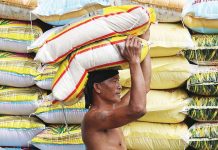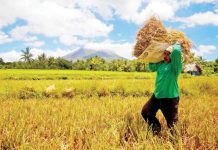THE Bureau of Plant Industry (BPI) warned the public against sanitary and phytosanitary risks coming from consuming smuggled onions online which did not undergo proper documentation and health inspection.
At a press briefing in Manila on Tuesday, February 27, BPI director Glenn Panganiban said the agency is coordinating with law enforcement authorities concerning the selling of smuggled onions through online platforms.
Panganiban admitted that regulating the sale of agricultural commodities online is difficult.
“But, rest assured that we are coordinating with the proper authorities, law enforcement units. As soon as we got that information about this, we already coordinated with them,” the BPI official said.
For the meantime, Panganiban called on the public not to patronize onions being sold online.
“The alleged smuggled goods… they carry the risk of sanitary and phytosanitary pests or diseases,” he said.
He added: “Thus, we appeal not to patronize this since they are not sure where these were sourced from.”
The BPI official said that smuggled onions sold online do not have proper documentation and did not undergo the necessary health risk inspections.
On Monday, February 26, Agri party-list Representative Wilbert Lee filed a resolution seeking an inquiry into the alleged selling of smuggled onions and other agricultural products on online platforms, which he said could be detrimental to the economy and local agricultural industry.
Lee said that the sale of smuggled onions is “booming” online, with some being sold for as low as P25 per kilogram (kg) on Facebook.
The daily price monitoring of the Department of Agriculture (DA) showed that local red onions were priced at P60/kg to P130/kg, while the imported ones were sold at P90/kg to P100/kg.
Local white onions, meanwhile, were priced at P50/kg to P120/kg, and the imported white onions ranged from P90/kg to P120/kg.
The lawmaker said that smuggled agricultural products pose threats to consumers as they failed to undergo phytosanitary analysis to determine if they are safe for human consumption. (GMA Integrated News)







